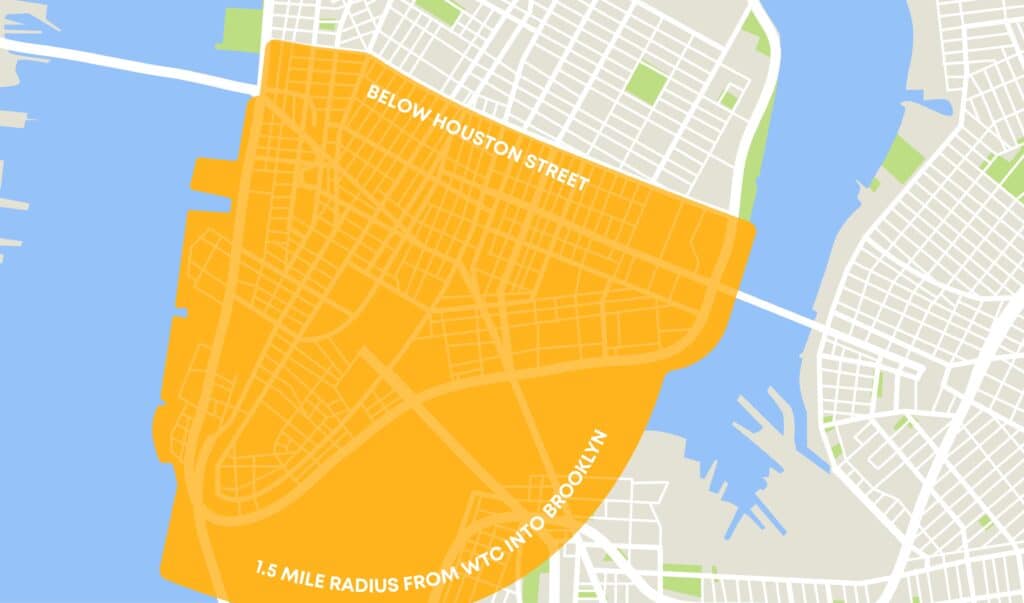
Many 9/11 victims and their families have already waited for a considerable period for compensation for their losses and are still suffering financially. Many don’t even know they’re eligible for compensation.
How long it takes to receive compensation from the start of the claims process with the Victim Compensation Fund (VCF) to the receipt of funds is a key concern for many families struggling to meet medical bills or make ends meet.
The VCF is managed by the Department of Justice (part of the federal government) so some patience is required when submitting claims. However, with the right legal assistance, the claims process may be optimized for claimants so that they receive the funds sooner rather than later.
How long does it take to receive the 9/11 Victim Compensation Fund payout?
Because of some holdups with VCF awards in the past, the fund has made efforts in recent years to streamline its processes for claims.
Claims are reviewed on a “first-in, first-out” basis, i.e., compensation decisions are made according to the date the claim was submitted. So, older claims are generally prioritized over newer claims.
While this may seem like common sense, the statement from the VCF that it is targeting a maximum of a one-year turnaround from the date of claim submission should be seen as a move in the right direction.
Unfortunately, this target is not always met. Correctly submitted claims can currently take 17 to 20 months, which exceeds the target by some distance — and if documentation is incomplete, the process can take even longer.
More complex claims and those filed for victims who died of a 9/11-related condition also generally take significantly longer than the one-year target.
That’s the bad news. In better news, expedited claims can be processed in as little as one month under some circumstances — though this is the exception to the rule.
Can my 9/11 VCF claim be expedited?
The time that it takes to receive an award from the VCF depends largely on the following factors:
- The accuracy of the information in the claim
- The completeness of claim documentation
- The timeliness of claimant responses (to questions and requests for more information)
- The volume of claims already in the system
For a realistic estimate of how long a compensation claim may take, it is important to first understand the VCF claims process.
Upon submission to the fund, a claim enters two phases of review, as follows:
- A preliminary review: to confirm that all the “minimally required” documents have been submitted and to advise the claimant if anything is missing (claimants have 60 days to respond).
- A substantive eligibility review: to ascertain whether a claimant meets the eligibility criteria set out in the VCF’s regulations and to verify the information provided (if more information is needed, claimants have 30 days to respond to requests for further details).
If a claim is submitted without the complete documentation or requests for information are not responded to promptly, the claims process can be delayed or the claim can be denied. Receiving an award as quickly as possible involves submitting all of the correct and completed paperwork.
But is it possible for a claimant to expedite a claim?
How to expedite the 9/11 VCF claims process
In rare cases, where the need for financial assistance is urgent, 9/11 VCF claims can be expedited by contacting the fund administrator and submitting the appropriate documentation to support a request.
The required documentation must still be complete and comprehensive even in pressing circumstances — and legal assistance may help to ensure that the process goes smoothly.
The limited circumstances where an expedited claim may be appropriate include:
- If a terminal diagnosis has been received
- If significant financial hardship has been endured
“Significant financial hardship” is regarded as an imminent or pending foreclosure or eviction proceeding, utility cutoff or similar circumstances.
Once the request for an expedited claim has been received, the Victim Compensation Fund notifies the claimant within 48 hours if it is approved or denied. If it is approved, the claim may be processed and payment issued within one month.
How to submit a 9/11 VCF claim
Before claimants can file a 9/11 VCF claim, they should register with the fund within the appropriate deadline. This gets claimants into the VCF system.
After that, claimants should follow these steps:
- Certify a 9/11-related health condition with the WTCHP
- Create an online account on the VCF website
- Complete the necessary paperwork (VCF claim form) online
- Apply online to the VCF: including the form and all necessary supporting documentation (e.g., medical records, employment records, and proof of presence at a 9/11 crash site on September 11, 2001, or in the following months).
The 9/11 VCF claims process timeline
As of the end of 2023, the timeline for processing VCF claims looks approximately like this:
- Claims submitted before mid-2022 are currently receiving award decisions.
- Claims submitted in late 2022/early 2023 are currently in substantive review or scheduled to enter that process.
- Claims submitted in mid- to late-2023 are in preliminary review.
Remember, claims are generally reviewed on a first-submitted, first-decided basis, according to the date of claim completion rather than VCF registration. Ultimately, the sooner a claimant submits a complete and eligible claim, the sooner an award will be issued by the VCF.
Provided no requests for further information are required, the process then becomes a waiting game and some patience is required by applicants.
Relatively simple claims may require no extra information while complex cases can prompt requests for further information/documentation, which can add weeks or months to the VCF claims process.
After the preliminary review process is completed, the VCF will contact claimants to inform them of its eligibility decision. Then, after the substantive review and the relevant calculations of non-economic and economic losses have been made, a letter is sent to claimants explaining the breakdown of the award and any associated terms and conditions.
After this letter is sent, the claimant has 30 days to appeal the decision.
If no appeal is made, payment is generally authorized within 20 days. However, it can take up to three months for payment to be processed by the Department of Justice and the Treasury Department.
Despite the best efforts of the Victims Compensation Fund to reduce waiting periods, it remains the case that without adequate preparation, the process of filing a VCF claim can be complicated and the timeline for receiving a payout can be lengthy.
To discuss your situation and learn more about how we may be able to help you, please call Weisfuse & Weisfuse, LLP at 212-983-3000 or contact us online to schedule a free consultation.

About Jason Weisfuse –
9/11 Victim Compensation Fund Attorney
About Jason Weisfuse –
9/11 Victim Compensation Fund Attorney
Jason E. Weisfuse is a seasoned 9/11 cancer attorney and managing partner at Weisfuse & Weisfuse, LLP, a New York City-based law firm dedicated to representing individuals affected by the September 11th attacks. Since the establishment of the September 11th Victim Compensation Fund (VCF), Jason has been instrumental in assisting first responders, survivors, and families in securing the compensation and medical benefits they deserve.
With a Juris Doctor from New York Law School (2009), Jason brings extensive experience regarding the 9/11 Victim Compensation Fund to his practice. His deep understanding of the VCF and the World Trade Center Health Program (WTCHP) has enabled him to navigate complex claims processes effectively, resulting in substantial awards for his clients.
Jason’s commitment to the victims in the 9/11 community is evident through his active involvement in professional organizations such as the New York State Trial Lawyers Association and the American Association for Justice. He has also contributed to legal discourse with publications in the New York Law Journal, reflecting his dedication to legal excellence and advocacy.
At Weisfuse & Weisfuse, LLP, Jason continues to provide compassionate and knowledgeable representation, ensuring that those affected by 9/11 receive the support and compensation they are entitled to.







